Running devotee expands friendships and perspectives joining groups for the physically disabled and those in addiction recovery
It’s 5:45 on a cool, damp Friday morning in the Tenderloin and Joe Kaniewski is about to take seven Tenderloin residents on a two-mile jog through the ‘hood. After brief warmup exercises and a sharing circle punctuated with a team cheer, the runners head over to Market Street. Less ambitious members of the group walk to a Starbucks, where they’ll all meet for coffee and conversation.
Kaniewski, 57, is a runner. He runs competitively. He runs to build fellowship, and he facilitates running groups focused on the homeless, people with disabilities, and those recovering from substance abuse. “It’s not the running, it’s the friendship that makes these groups work,” he said.
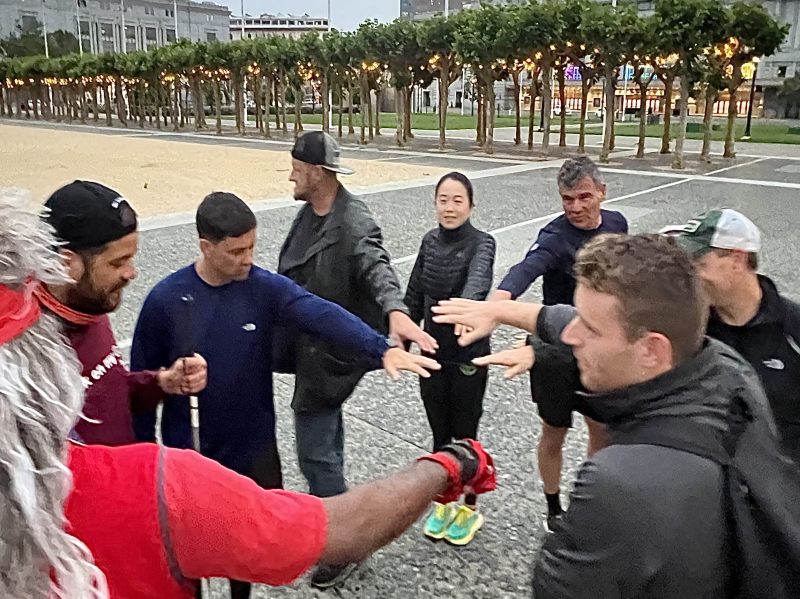
The Friday run is sponsored by Back on My Feet, which has programs in 13 states, including California, and the District of Columbia. The organization focuses on the fellowship of running as a way to support the homeless and those coming out of homelessness. It recruits participants from halfway houses and shelters. Runners who stick with the program for several months are eligible for housing and employment services from Back on My Feet.
Renewing independence
“We’ve all been down and out and know what it’s like to need support,” said Kaniewski, a volunteer who leads two runs a week in the neighborhood. “Taking those first steps toward renewed independence and better health must be scary, but it’s heroic to witness the transformation our regular meetups can lead to.”
Although the Tenderloin is one of the city’s most troubled neighborhoods, “we’ve never experienced a dangerous incident during our runs. I have seen some sad things but not too many scary things,” Kaniewski said.
Sometimes co-leader Mario Ascencio, 60, was a chef and sommelier before addiction took over his life.
“Back on My Feet helped me a lot. They paid for me to attend classes and receive a certificate as a medical interpreter,” Ascencio said. He interprets three or four times a month now and earns $25 an hour. He’s considering studying for a certificate in legal interpretation. “But first I need to find a place to live, my time is up at Walden House,” he said.
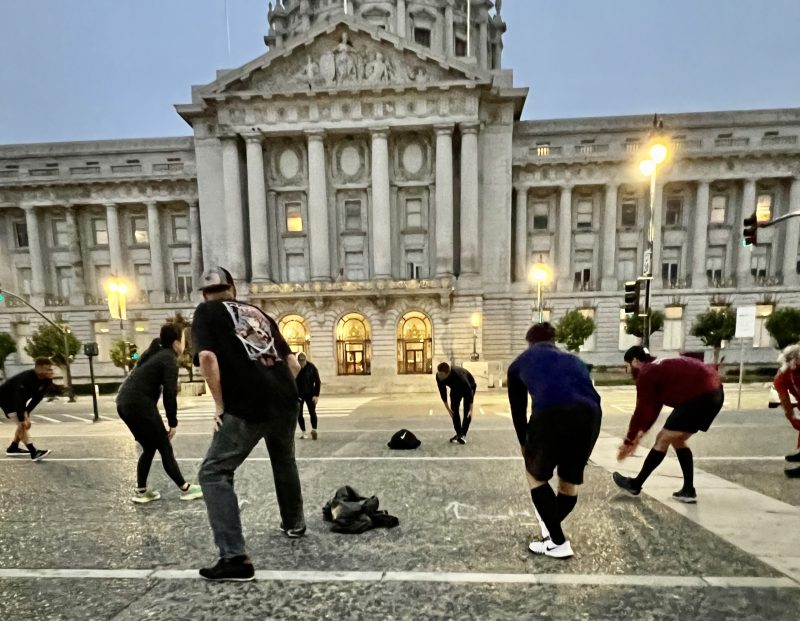
Kaniewski also supports runners with disabilities. Twice a month, he joins Achilles SF Bay Area runners at Judah and the Great Highway.
Keeping an eye on the road
“Being a guide for athletes with disabilities is a whole different running and moving experience,” he said. “You have to be constantly reading the sidewalks and paths for obstacles.” Guides vocalize stops, starts, distances, pathways through crowds, and upcoming hazards. “I haven’t had a crash yet.”
Corvin Bazgan, 49, who is deaf and virtually blind due to the hereditary Usher syndrome, said Kaniewski is a good guide and a nice guy. But, he quips, he prefers running with someone who can keep up with him. “He’s slower than I am.”
The two train together when Bazgan is preparing for a competition. A software engineer, Bazgan has participated in Iron Man triathlons in California and Arizona and is planning to compete in this September’s Iron Man in Nice, France.
Kaniewski is a product sales manager and president of the Dolphin South End Runners, one of the oldest and most active running clubs in San Francisco. The club organizes more than 50 runs a year, and Kaniewski, a resident of San Francisco’s Outer Richmond district, can be found at most of them.
“Running gives me pleasure. It’s my place of happiness,” he said. “When my children ask me what I want for a present, I tell them I want them to run with me.” And when they’re in town they have, joining him for the club’s Father’s Day and other races.
Running wasn’t Kaniewski’s first sport. It was not until he graduated from high school and became an Army medic that he discovered he “was good at running and had an extra gear for endurance.” He ran some in college, at the University of Oregon, but his studies and job as military and veterans’ caseworker for then-Oregon Congressman Pete DeFazio filled his hours.
Filling an empty nest
Later, after moving to Washington D.C. for a position as an archives specialist with the National Archives, running became an antidote to the stress of a full-time job, young kids, and a mortgage. And when his children – he has four – grew up, running became a way of coping with the feelings of being “an empty nester,” he said.

Kaniewski discovered the Dolphin South End Runners when he and his family ran into some of them on a hike at Lands End while vacationing in San Francisco. Five years later, when the family moved to the city, he joined them.
“You never know who you’ll meet,” he said. “World-class athletes from Scotland or South Africa, high school runners, newbies, and walkers, they all turn out.” DSE charges $5 or $10 per run and participants can sign up on the day of the race.
“There truly is a transformational power to running,” he said. “I see it firsthand at DSE, Back on My Feet, and Achilles. Running has given me a means to re-center, a new way to coach and support others and to see the world from different perspectives.
Volunteering enriches my life. I wouldn’t have met these people if I didn’t get myself out there. Helping others is a way of expressing gratitude, paying it forward. It’s a way of sharing goodness.”


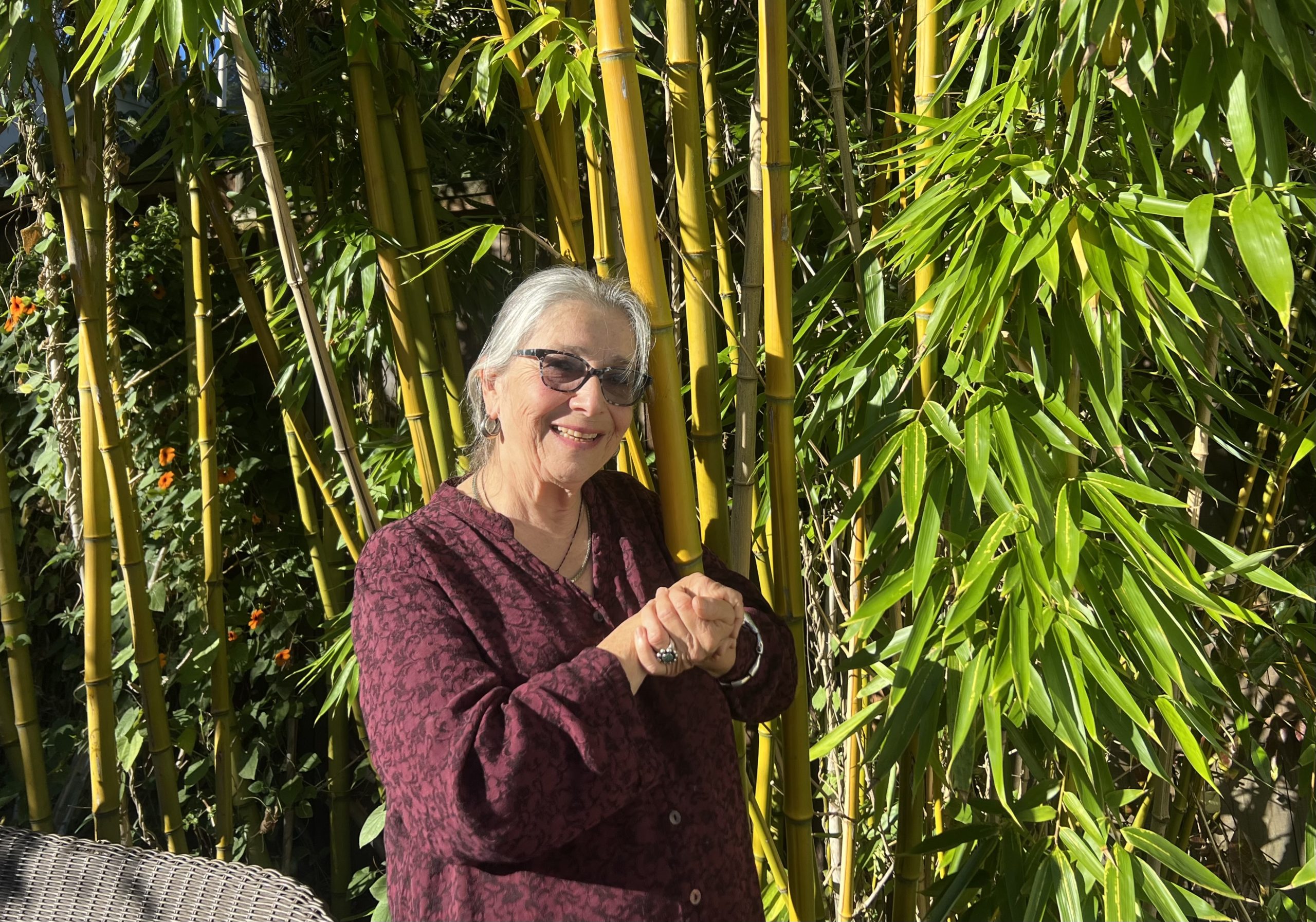
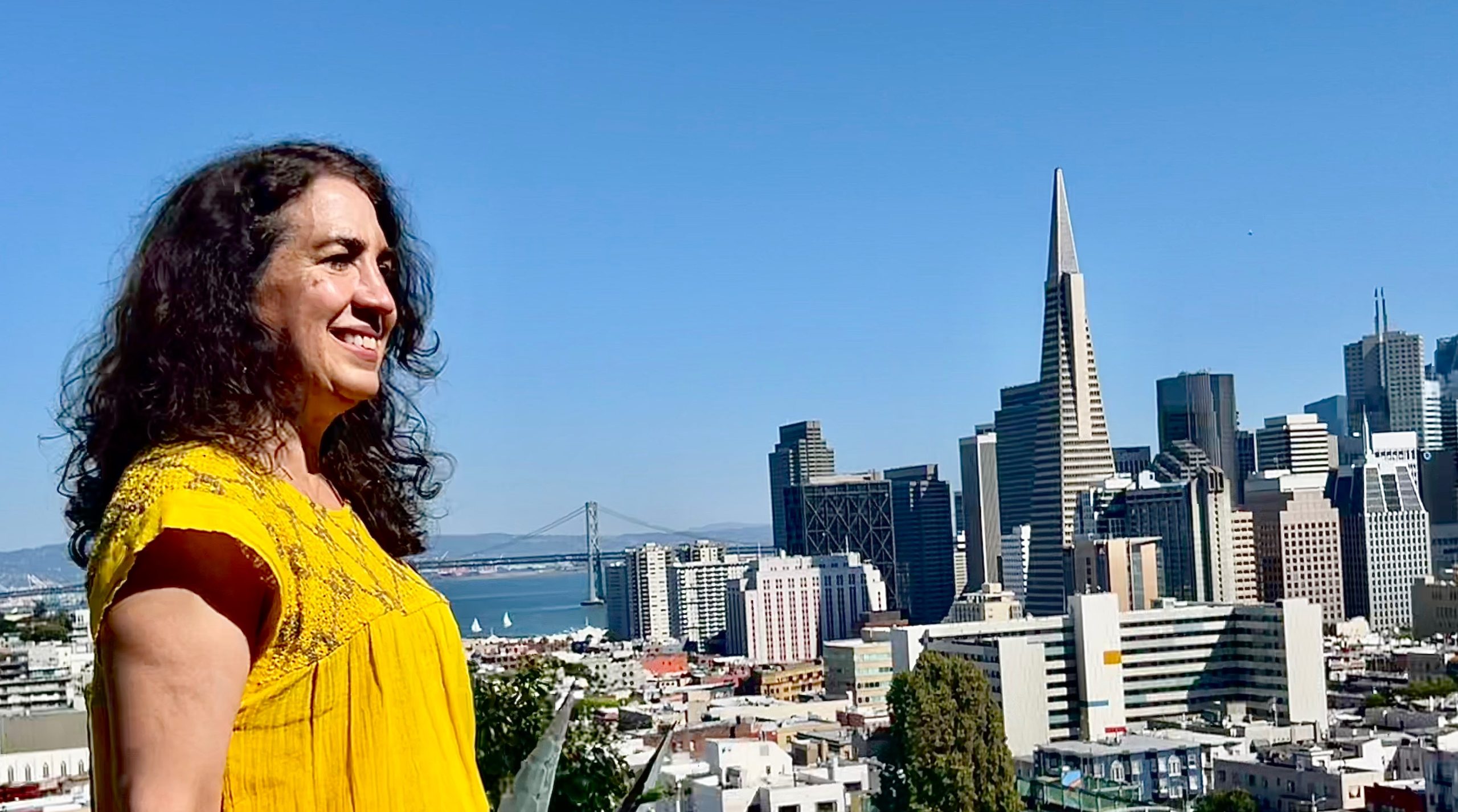
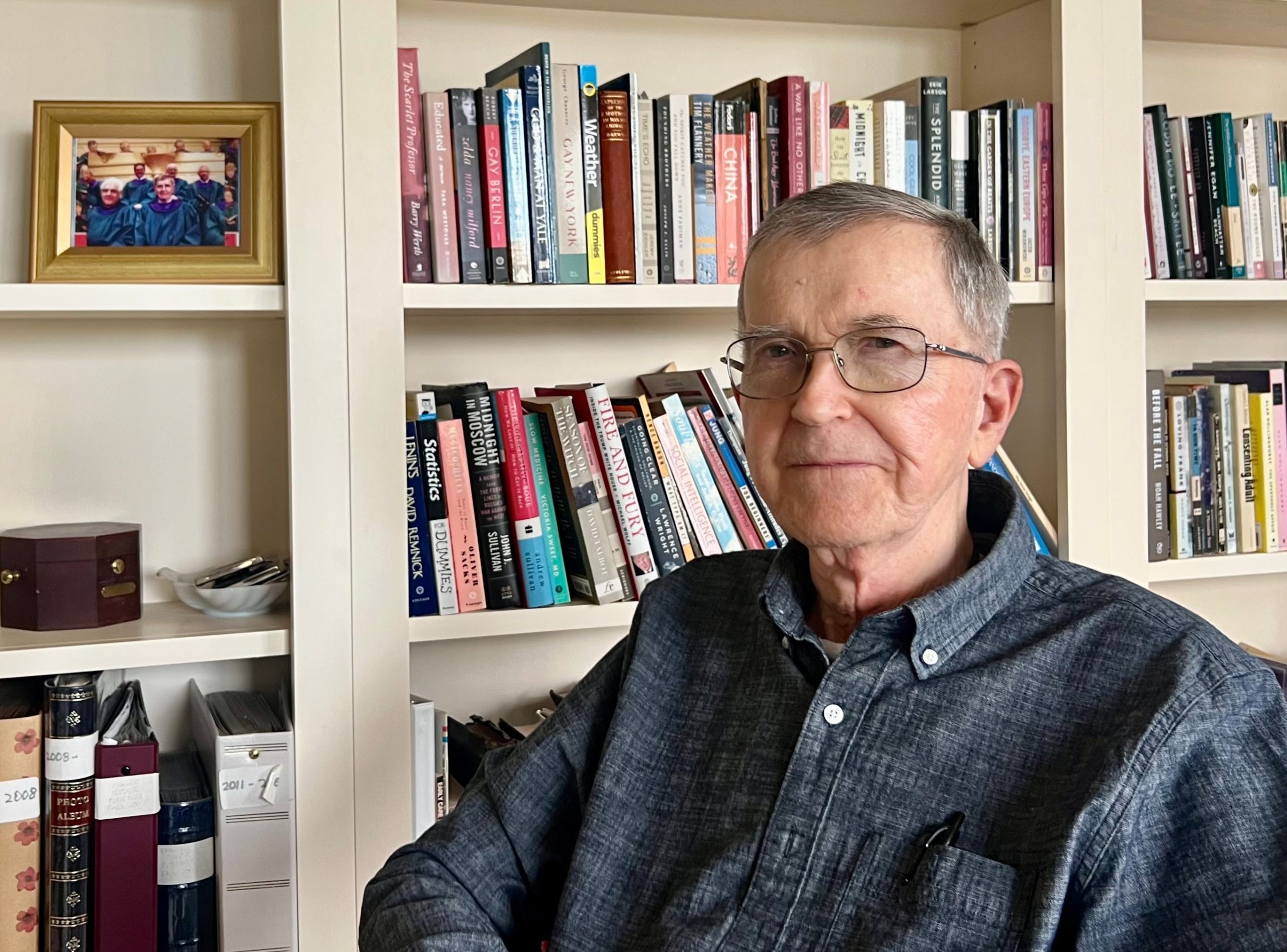

Barbara Barer
A wonderful and inspiring article, so well told!